 You're probably wondering how a story about orphans in Africa and HIV could possibly be uplifting. I don't blame you. A couple months (weeks?) ago I thought the same thing. I saw only the statistics and they were not encouraging. You know, numbers that catch one's attention but leave you feeling overwhelmed with the immensity of the problem. Like this one "Of the 2.1 million children infected with HIV, 90% live in Sub-Sahara Africa". I'm embarrassed to admit that my geography was poor enough that I had to look up the countries that are "Sub-Sahara" to see if that included Kenya (it does, duh!).
You're probably wondering how a story about orphans in Africa and HIV could possibly be uplifting. I don't blame you. A couple months (weeks?) ago I thought the same thing. I saw only the statistics and they were not encouraging. You know, numbers that catch one's attention but leave you feeling overwhelmed with the immensity of the problem. Like this one "Of the 2.1 million children infected with HIV, 90% live in Sub-Sahara Africa". I'm embarrassed to admit that my geography was poor enough that I had to look up the countries that are "Sub-Sahara" to see if that included Kenya (it does, duh!).One more
 eye popping stat- it's predicted that 25 million children will be orphans by 2010 due to HIV/AIDS. And those kids are more at risk for being infected themselves because 95% of infected infants get it from their mothers. When I read those numbers I let out a big sigh and thought what a pity it is but what can we do? Well, I think that's what the Downey's thought 10 years ago when they started the Ongoro Children's Home here in Kenya. They knew they might not be able to save all the children but by gosh, they were going to save some of them.
eye popping stat- it's predicted that 25 million children will be orphans by 2010 due to HIV/AIDS. And those kids are more at risk for being infected themselves because 95% of infected infants get it from their mothers. When I read those numbers I let out a big sigh and thought what a pity it is but what can we do? Well, I think that's what the Downey's thought 10 years ago when they started the Ongoro Children's Home here in Kenya. They knew they might not be able to save all the children but by gosh, they were going to save some of them.Ongoro is a lovely area right on the shores of Lake Victoria and houses 40 children aged 4 to 15.
The kids live in small houses that serve as dorms. They sleep on bunk beds under mosquito nets. Each has their own foot locker and shelf for personal belongings. They're watched over by "mothers" who work for Lalmba but treat the kids not as if they're a job but as if they're family. They eat in an open, airy mud and straw hut where they're served mostly traditional Luo food- fish, ogali (like grits or mush), sikuma wiki (greens), beans, porridge, milk, fruit.
The mothers do the laundry for the little ones, cook their meals, arbitrate disputes, monitor their health and dispense medications and give generous servings of hugs and cuddles.
There are 5 children who live at the home who have HIV. They were all infected either at birth or in the first year of life. Most have been orphans since they were toddlers and have lived at the children's home most of their young lives. Every 2 months they are taken to the St. Camillus HIV clinic for a check up and to get more medications. In August I went along so I could see the care they were getting there and to look at the system to see what parts we might be able to adapt (steal) to use in our own Peds HIV clinic.
The 5 kids ran
 ged in age from 5 to 9; 3 boys and 2 girls. At first they were a little wary and shy with me. But everyone who knows me knows how much I love kids. I can't help myself- they're just such perfect beings. First I crawled into the back of the truck to meet them all. They were still shy. Then I took a picture and showed it to them. Still shy. Then I had one of them take a picture. Suddenly giggles abound. Aah, I'd found the key! More pictures and crazy poses and we were like long lost friends.
ged in age from 5 to 9; 3 boys and 2 girls. At first they were a little wary and shy with me. But everyone who knows me knows how much I love kids. I can't help myself- they're just such perfect beings. First I crawled into the back of the truck to meet them all. They were still shy. Then I took a picture and showed it to them. Still shy. Then I had one of them take a picture. Suddenly giggles abound. Aah, I'd found the key! More pictures and crazy poses and we were like long lost friends.St. Camillus is an NGO that sits in a small town of Sori on Lake Victoria about 1 hour away from Matoso. The HIV clinic sees only kids on
 Wednesday and when we arrived the waiting area was already full with many kids. Our kids are well known to the staff there and so were greeted and checked in rather
Wednesday and when we arrived the waiting area was already full with many kids. Our kids are well known to the staff there and so were greeted and checked in rather quickly. Then the wait began. The mothers went to a class on some topic relevant to HIV care that was given in Luo . I gladly ducked outside to play with the kids. They rummaged through my bag and found a pen and some paper
quickly. Then the wait began. The mothers went to a class on some topic relevant to HIV care that was given in Luo . I gladly ducked outside to play with the kids. They rummaged through my bag and found a pen and some paper  and then took turns leaning on my lap to draw pictures and write their names. We looked for butterflies and picked flowers. We played hand clapping games that date back to my childhood days. Pretty soon other kids wandered over and joined the fun. When they finally called our names I had to extricate myself from a small mob of tiny people.
and then took turns leaning on my lap to draw pictures and write their names. We looked for butterflies and picked flowers. We played hand clapping games that date back to my childhood days. Pretty soon other kids wandered over and joined the fun. When they finally called our names I had to extricate myself from a small mob of tiny people.The physician, Dr. Bertha has her own special love of children which becomes apparent in her interactions with them. They are each examined, medications are reviewed, then the
 mothers were questioned and had a chance to report their concerns. Two of our children are tiny for their age and have developmental delays. One didn't walk until 30 months old. But, all have grown since their last visit and are doing well from a medical stand point.
mothers were questioned and had a chance to report their concerns. Two of our children are tiny for their age and have developmental delays. One didn't walk until 30 months old. But, all have grown since their last visit and are doing well from a medical stand point.The kids know that after their appointment we will stop for lunch before heading home so all become antsy as the visit winds downs. We went to a small restaurant and ordered fish, sikuma and ogali for the children. Once they were settled, we ordered our own meals. As a vegetarian I had 1 option- sikuma and fries. I also had a
 rare Coke. The children finished their meals as we were just starting ours. The tiniest boy came over, pulled up a chair next to me and wordlessly ate as many fries as he could before stuffing the rest into his pocket for the ride home. He then finished my Coke. Although the mothers tried to shoo him away, I was delighted to share my meal with him.
rare Coke. The children finished their meals as we were just starting ours. The tiniest boy came over, pulled up a chair next to me and wordlessly ate as many fries as he could before stuffing the rest into his pocket for the ride home. He then finished my Coke. Although the mothers tried to shoo him away, I was delighted to share my meal with him.I felt like his "auntie" and as my siblings can attest, I believe that parents are the keepers of rules which it is my job as an auntie to break.





























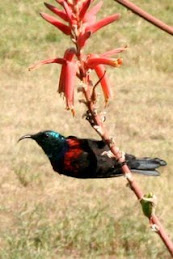
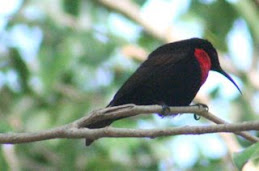
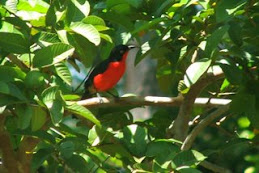
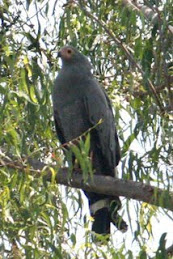






































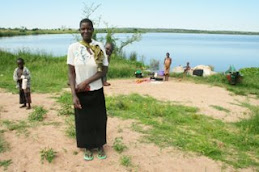

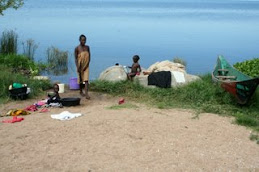

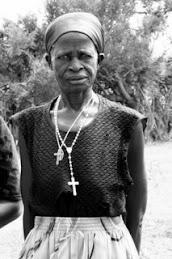






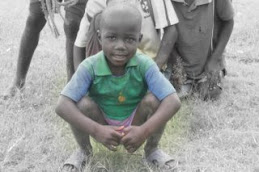


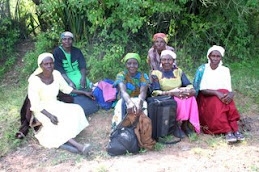

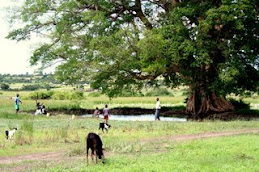
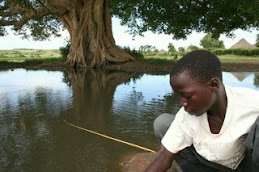
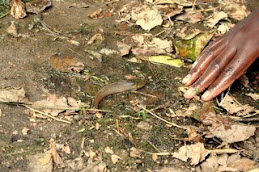



























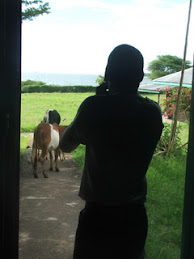

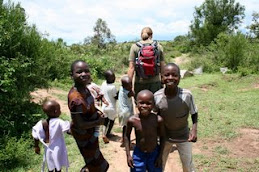











































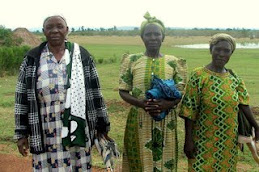

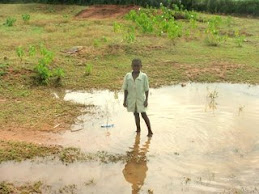

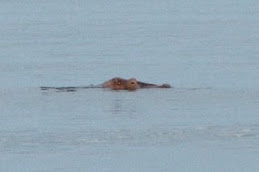



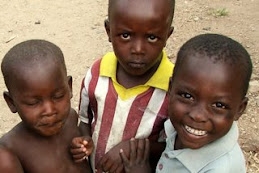


















3 comments:
hello Darci and Paul, a short note, i havent been viewing your blog for a while, but as i mentioned before, i just love the writing, and the pictures are fabulous. i subscribed to get notices when you post, so now i can be reminded all the time. i was disheartened by the bureaucracy issue with the woman. what a sad state. i wish you all the best and will write again the next time i get a chance. Joe
Wao, Darcie and Paul! It has been some weeks since I last looked at the blog. Your photos are so amazing. I wish I was better at keeping my camera at-the-ready here in Tanzania, but I'm just not!
I was especially interested in the story about the pediatric HIV clinic (considering the work I am doing here). Although pediatrics was not my area of expertise before coming here (and it is not the focus of ASPIRE), I have adopted as my personal mission helping the children with HIV here get good care. It is so heartening to see a program that is so kid-focused. I have seen that in only one facility I have been to, and it was a beautiful thing. The clinicians here tend to be very fearful of treating children. And I think it is because when the gov't first initiated ARV treatment here, it was clearly stated in the treatment guidelines that all children only be treated at regional hospitals (how practical is that???). Although the guidelines have been changed for some time (children are now being treated at the village level), clinicians still feel like it must involve expertise that they don't have. Which at first, is true, but just like treating adults with HIV, they can learn! Now, all the psychosocial issues that come with treating children with HIV are surfacing: grief around losing one or both parents, adherence to their medications, when should the child be told they have HIV (guilt, shame and stigma play a role here), sexuality as the children enter their adolescent years, etc etc! All can be tackled, but these are such critical issues. Treating children with HIV is so much bigger than calculating the correct dosage! Anyway, I am rambling now. SO looking forward to seeing you in a couple of weeks! Big love, Jenny
Its really heartbreaking to see those innocent faces .. infected with HIV.. good post
Birth Certificate
Post a Comment